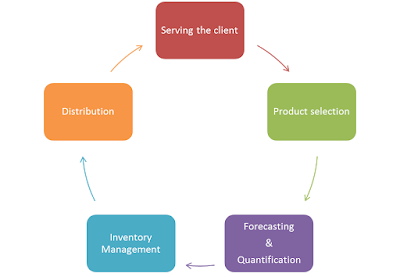Connecting with the Subject Matter
Written by Adebayo Adekola
How many of us have been faced with situations of developing content that we are less familiar with? The usual practice is to jump right in and discuss with subject matter expert. I'll like to offer another perspective that I have adopted in my instructional design work.
Anytime I'm confronted with a subject matter that I'm not familiar with, I take the time to think and connect. Every subject matter is connected one way or the other and trust me you can always find a connection.
Let's take a simple example. As a learning professional working with a non-profit, I have been asked to design instruction for a warehouse management training. Where do I start from? How do I connect with the subject matter even when I'm not directly involved and have to work with a subject matter expert (SME)?
How many of us have been faced with situations of developing content that we are less familiar with? The usual practice is to jump right in and discuss with subject matter expert. I'll like to offer another perspective that I have adopted in my instructional design work.
Photocredit: Entrepreneur
Anytime I'm confronted with a subject matter that I'm not familiar with, I take the time to think and connect. Every subject matter is connected one way or the other and trust me you can always find a connection.
Let's take a simple example. As a learning professional working with a non-profit, I have been asked to design instruction for a warehouse management training. Where do I start from? How do I connect with the subject matter even when I'm not directly involved and have to work with a subject matter expert (SME)?
- Think about the overall goal or outcome of the training. In this case, it is warehouse management. What is the effect on product availability? How does effective warehousing impact on the population?
- Think through your own past experience(s). Have I ever visited a warehouse? Have I heard a story before?
- Speak with the subject matter expert in person. Allow him/her to share his experiences. Focus on practical stories that will help you connect rather than theories or concepts alone. You will remember a good story most likely.
- Don't limit your experiences to the subject matter expert alone. Speak with people who work there on a daily basis.
- Pay a visit to gain more understanding. In this case, visit the warehouse. If you are developing a course for refugees, try to see and feel what they go through.
- Construct your own thoughts from these experiences. This can be done by having your own stories, opinions and forming conclusions. Bring these stories, opinions and conclusions to bear in the instructional design.
Let's be truthful; you cannot be experts in every subject but if you must design quality instructional design materials, you must find that connection. Instructional designers and trainers are like journalists; we need to tell a story and the best stories come from connecting with it and not just reporting it.



Comments
Post a Comment